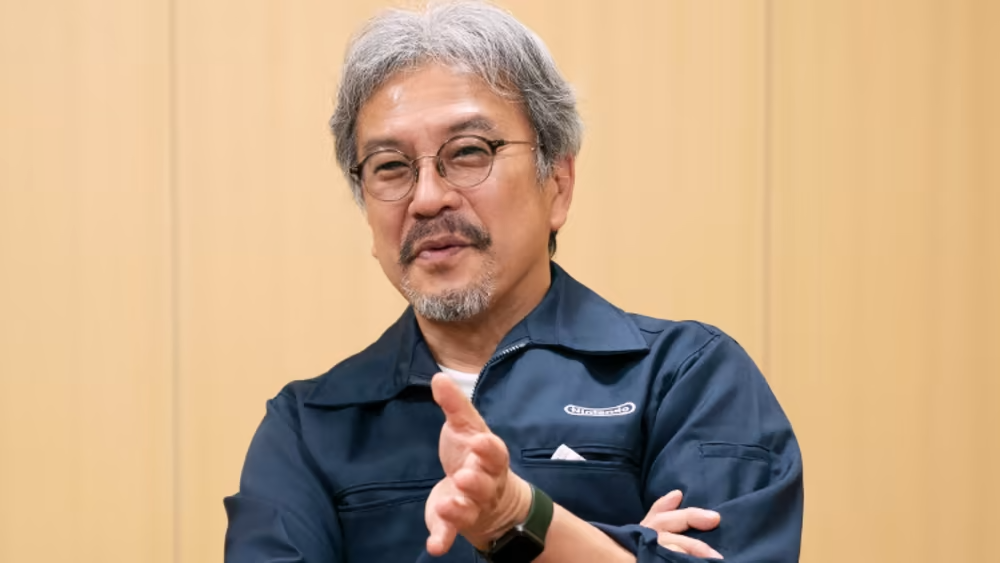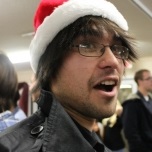Zelda Series Producer Eiji Aonuma Describes Ocarina of Time’s Format As “Restricting”
Posted on May 18 2023 by Rod Lloyd

The Legend of Zelda franchise has evolved extensively over the past 37 years. From its 8-bit beginnings with The Legend of Zelda, to the adoption of a third dimension with Ocarina of Time, to a full embrace of player freedom with Breath of the Wild, the series has continually reinvented itself and found new ways to stay relevant within our ever-changing world. Tears of the Kingdom carries on this tradition, with the game offering a sandbox of possibilities so immense that we doubt we’ll ever see the limit in what players can create and do.
In a new interview with Game Informer, Zelda series producer Eiji Aonuma and Tears of the Kingdom director Hidemaro Fujibayashi talked extensively about the latest game in the series. After discussing things like Tears of the Kingdom‘s world and new abilities, Aonuma and Fujibayashi were asked if their increased focus on player freedom, as established in Breath of the Wild, signals a new era for the Zelda series.
Aonuma pondered whether or not we’re seeing a new normal for the Zelda series by first reflecting on the series’ past, particularly the revolutionary Nintendo 64 title Ocarina of Time:
[Game Informer] On that note, I think a lot of people share the viewpoint that Ocarina of Time was kind of the starting point for one era of Zelda games, laying the foundation for the several titles that came after it. Do you see Breath of the Wild as establishing the new blueprint or foundation of the next several Zelda games for years to come?
EA: With Ocarina of Time, I think it’s correct to say that it did kind of create a format for a number of titles in the franchise that came after it. But in some ways, that was a little bit restricting for us. While we always aim to give the player freedoms of certain kinds, there were certain things that format didn’t really afford in giving people freedom. Of course, the series continued to evolve after Ocarina of Time, but I think it’s also fair to say now that we’ve arrived at Breath of the Wild and the new type of more open play and freedom that it affords. Yeah, I think it’s correct to say that it has created a new kind of format for the series to proceed from.
The conversation then moves to a reflection on the Zelda series overall, as Aonuma and Fujibayashi examine the elements that make the series what it is and the reasons for the series’ consistent quality:
Breath of the Wild was such a change from the rest of the franchise, but it still had a lot of the same DNA and undeniably felt like a Zelda game. When you’re implementing new features and innovating in such drastic ways with a long-running and beloved series like The Legend of Zelda, is there any nervousness that they might alienate longtime fans?
EA: Well, it’s just as you said: Making sure that Zelda-ness or that Zelda feel is really in the game. I think that’s a really important point. Even if a game like Breath of the Wild has really big changes in it, as long as the fans and the players are able to feel that this is a Zelda game at its core when they play the game, that is something that is really important for us when meeting fans’ expectations.
HF: And really, when we’re talking about this, I guess, essence of Zelda, as long as we preserve that, then I think it provides us with the freedom to really build Zelda, and it can become many different things. For example, it could be a puzzle game, an adventure game, or an action game. All of these moments that can be dropped into a game help it become a Zelda-like game as long as that essence is preserved. I think even with Breath of the Wild, there are big changes in the core gameplay mechanics, but that essence was still preserved. Likewise, with Tears of the Kingdom, we’re really providing players with the freedom to use their creativity to come up with solutions, so that nervousness or doubt about whether this is okay isn’t something that we’re really worried about. What we really are focused on is that, through experimentation, making sure that the gameplay experience is something that is enjoyable and fun, and then taking that and making sure that the essence of Zelda is still alongside that. That is what I think makes it important, and that’s a field that the Zelda team really has a lot of confidence in.
The Zelda series has been running for more than three decades now, and it’s still putting out critically acclaimed entries pretty much every time. What do you think is the most important factor for how the development team is able to sustain this high level of quality over such a long period of time?
HF: Speaking from the development perspective, I think some of it has to do with the fact that we have a unique and diverse set of people in our teams in that they have all kinds of hobbies; it’s not only just people who play games. And they have these hobbies that they enjoy, and they take that fun that they experience in their real lives and try to drop the essence of those elements into the games that they create. Having that environment where they feel like they can freely develop and use their creativity to drop these into the games they’re working on, I think, plays a critical role in allowing for very diverse and unique games to be created.
EA: When it comes to Nintendo’s development, I think we have a bit of tenacity with the ideas that we come up with. So as you may be aware, Mr. Fujibayashi was the director of The Legend of Zelda: Skyward Sword, and in this game, he had the desire to give Link the ability to seamlessly descend from the sky and then, after landing, kind of proceed from there. That was something that, given the time, he was unable to do, but I think that this idea is something that probably stuck with him and stayed in his head. When it came time to make games of a different kind and the type or the shape of the game might change those, those opportunities arise when you can find a way when you can find a way, maybe from a different angle of implementing that idea that you’ve kept with you all this time.
This is something I think Mr. Miyamoto has said in the past, but when you have an idea and try to make it work, and it doesn’t work out, you don’t give up on that idea. Instead, just wait for the right opportunity to arrive. Those ideas – and I think this is true of our developers – stick around in their heads; they keep them with them as they continue in their work. When those things pile up, and the right opportunity presents itself, we find the opportunity to implement those ideas.
I love Ocarina of Time as much as the next guy, but I do empathize with the position Aonuma describes above. Breaking out of the admittedly rigid formula established in 1998 has helped the Zelda team craft two massive, critically acclaimed titles with Breath of the Wild and Tears of the Kingdom. While I certainly hope to see a return-to-form throwback one day, I appreciate the bold choices made by the team over the past few years.
But what about you? Do you agree with Aonuma about Ocarina of Time being too restricting? Do you think the Zelda series is moving in the right direction? Let us know in the comments below!
Source: Game Informer

Rod Lloyd is the Editor-In-Chief at Zelda Dungeon, overseeing the news and feature content for the site. Rod is considered the veteran of the writing team, having started writing for Zelda Informer in 2014 as a Junior Editor. After ZD and ZI officially merged in 2017, he stepped into the Managing Editor role and has helped steer the ship ever since. He stepped up to lead the writing team as Editor-In-Chief in 2023.
You can reach Rod at: rod.lloyd@zeldadungeon.net



